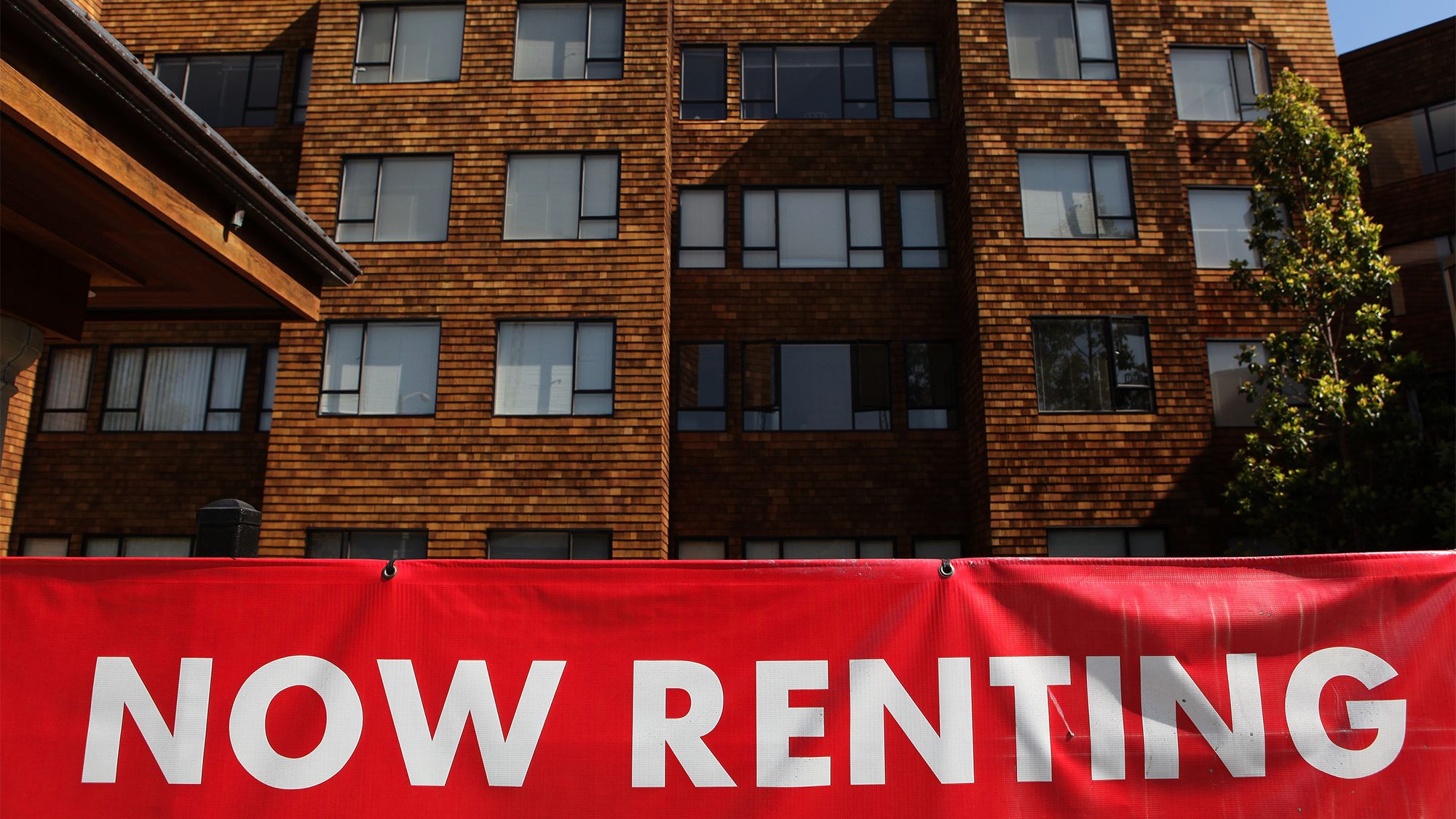
Justin Sullivan/Getty Images
With April 1 right around the corner, residential landlords across the country are waiting to see how bad of a hit they’ll be taking from the coronavirus pandemic.
Millions of Americans have lost their jobs or income as the pandemic has shut down businesses and brought entire cities to a standstill. And many of these people will be unable to pay the rent when it is due at the beginning of the month. It’s a situation unlike anything landlords today have faced before.
‘Some people I think might believe landlords are all rich and have tons of money. I wish that were the case, but landlords are just trying to pay bills like everyone else.’
“I don’t think we really have any baseline for this in modern history,” said Flora Arabo, national senior director of state and local policy at Enterprise Community Partners, a national nonprofit organization that focuses on the development of affordable housing.
“The 2008 downturn was really specific to homeowners and didn’t lead to a huge surge in evictions,” Arabo said. “We’ve never been faced with anything quite like this.”
The federal government is expected to provide financial assistance to households as part of the $2-trillion stimulus package negotiated by the Senate and the White House. The package is expected to include a one-time payment of $1,200 for individuals and $2,400 for couples, with the amount decreasing for households that have income above a certain threshold. (Families will also receive $500 per child.)
But for half of households nationwide, those one-time payments may only cover the rent for one or two months, even though people potentially could be out of work for much longer than that.
The median gross rent was $1,023 as of 2018, according to the most recent data from the U.S. Census Bureau, and the cost of rent has only increased for most households in recent years.
Even for households that do receive enough money to cover rent, they might not get the cash in time for their next rent payment, because the government’s checks are unlikely to arrive before April 1.
For mom-and-pop landlords, the situation could be dire. “Mom-and-pops likely have a lot of exposure right now,” said Caitlin Walter, vice president of research at the National Multifamily Housing Council. “If you bought a second home as an investment opportunity, then you still need to cover that mortgage and I would say that it’s likely that a lot of the rent is going to pay the mortgage in most cases.”
If you bought a second home as an investment opportunity, then you still need to cover that mortgage and I would say that it’s likely that a lot of the rent is going to pay the mortgage in most cases.
As tenants miss rent payments, costs will add up quickly for landlords
Individual investors — in other words, mom-and-pop landlords — owned nearly half of all rental units nationwide, according to 2015 U.S. Census Bureau data. Moreover, smaller residential real-estate investors have dominated new purchases of rental properties recently.
Some landlords will receive relief on their mortgage payments. Fannie Mae and Freddie Mac have both said they will allow lenders to provide forbearance to borrowers who own multifamily properties if they have suffered financial hardship because of the national coronavirus emergency. This would allow them to reduce or pause mortgage payments for up to three months.
But landlords’ mortgages are just one piece of the financial puzzle. “All the expenses of being a landlord add up quickly,” said Clint Cash, a landlord who rents out seven properties in the Dallas-Ft. Worth region of Texas. “Some people I think might believe landlords are all rich and have tons of money. I wish that were the case, but landlords are just trying to pay bills like everyone else.”
Cash, 43, noted that property taxes can add up to the same amount or more than the mortgage payment on a property, depending on where it is located. And while lenders may be providing forbearance to some landlords, lawmakers have yet to issue breaks on taxes during the coronavirus emergency.
Landlords are just trying to pay bills like everyone else.
While landlords should ideally have emergency reserves in place to handle a situation like this, Cash argued few small-scale landlords likely have amassed those savings.
Then there are the costs associated with maintaining rental properties. In most parts of the country, apartment staff have been designated as essential workers, which means landlords still need to pay their salaries. “If something breaks in the apartment, if the HVAC goes, it still needs to get fixed, and it needs to get fixed ASAP,” Walter said. “And so those are expenses that will continue whether or not the person is paying their rent.”
Some landlords are also facing the costly task of having to extensively clean properties where residents have contracted COVID-19 in order to avoid the virus spreading to neighbors, she noted.
Eviction bans could push some landlords into foreclosure
Another complicating factor for landlords right now are the eviction moratoriums many states and cities have imposed to protect renters and ensure they have a place to live throughout the coronavirus emergency.
Housing experts warn these policies could end up doing more harm than good if they’re not coordinated properly. “While they are public health imperatives they also need to be paired with rental assistance of some kind,” Arabo said. “Otherwise, you know, we’re really just kicking the can down the road and delaying eviction rather than preventing it in the long run.”
While [eviction bans] are public health imperatives they also need to be paired with rental assistance of some kind. Otherwise, you know, we’re really just kicking the can down the road and delaying eviction rather than preventing it in the long run.
The eviction bans, as many are structured now, could quickly exacerbate the financial hurdles landlords are facing. Take Dallas County, where Cash’s rentals are located. The county has banned evictions for 60 days, meaning that residents could miss two rent payments in that time. In reality though, evictions could end up taking longer than that because it could take time for a landlord to secure a court date. In that time, the landlord still has to pay many of their expenses on their properties.
When you then factor in how landlords may have multiple tenants not paying rent, the problem can become exponentially worse. “It makes it more difficult to not have a foreclosure as these numbers increase,” Cash said. “If this happens, not only did the tenant lose a home to live in, the landlord lost the investment property.”
And even once a resident is evicted from a unit, the landlord will face expenses in fixing up the property and listing for rent it. “For most landlords evictions are costly,” Arabo said, “and they only do it when absolutely necessary.”
Some states and cities have allocated funds for rental assistance, which Arabo said should help prevent problems like these from arising. The state of Colorado has earmarked $3 million for rental assistance, while the city of Columbus, Ohio, has set aside $1 million for this purpose.
The post The Coronavirus Could Hit Mom-and-Pop Landlords Hard as Tenants Miss Rent Payments appeared first on Real Estate News & Insights | realtor.com®.
